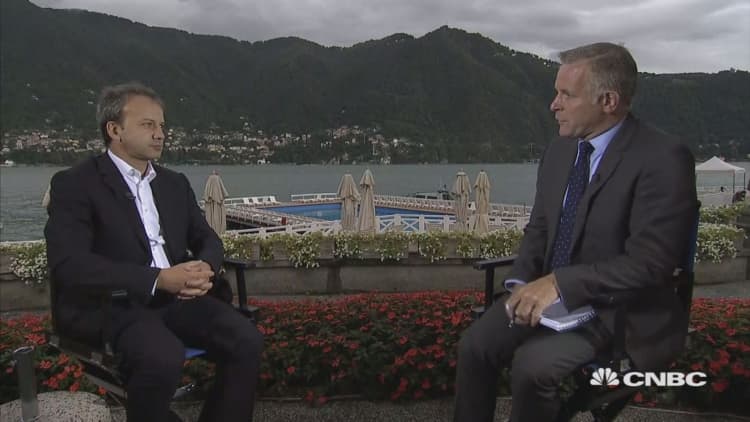Russia's Foreign Ministry has condemned the U.S. decision to seize three Russian diplomatic facilities as a "blatantly hostile act", urging Washington to immediately reverse the call or "bear the total blame" for worsening diplomatic ties.
The U.S. ordered the closure of the Russian consulate in San Francisco on Saturday, as well as two trade offices in New York and Washington. The State Department order, given in late August, followed Moscow's decision to cut America's diplomatic presence in Russia.
Diplomats from Moscow were working to vacate the properties over the weekend.
"We treat these developments as a blatantly hostile act, a grave violation by Washington of international law," the Russian Foreign Ministry said in a statement on its website on Sunday.
"We urge the U.S. authorities to come to their senses and to immediately return the Russian diplomatic facilities. Otherwise the U.S. will bear the total blame for the ongoing degradation of the relations between our countries," the ministry added.
'We aren't happy'

The U.S. order to close the three diplomatic facilities marks the latest in a series of pointed diplomatic exchanges between the two countries.
America imposed fresh sanctions on Russia in early August, building on previous penalties that focus on interference in the 2016 U.S. election, human rights violations, the annexation of Crimea and the alleged destabilization of eastern Ukraine.
Shortly after President Donald Trump reluctantly signed new sanctions on Russia into law last month, Moscow responded by ordering the U.S. to cut its diplomatic and technical staff in Russia by more than half.
However, Russia's Deputy Prime Minister, Arkady Dvorkovich, told CNBC on Saturday that the latest sanctions from the U.S. would ultimately have a greater impact on Europe than on Moscow.
"My assessment is that U.S. sanctions eventually bring more harm to Europe than to Russia, also as a result of our counter-sanctions that create burden costs for the European economy," Dvorkovich said on the sidelines of the Ambrosetti Forum in Italy.
"We aren't happy about it but we had to react and Europe is suffering from that," he added.
— CNBC's Silvia Amaro contributed to this report.


